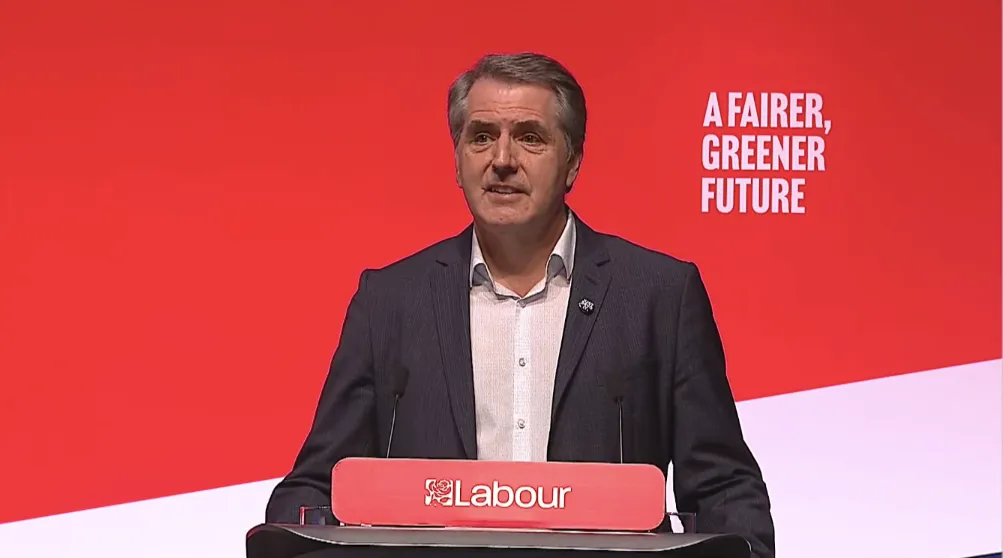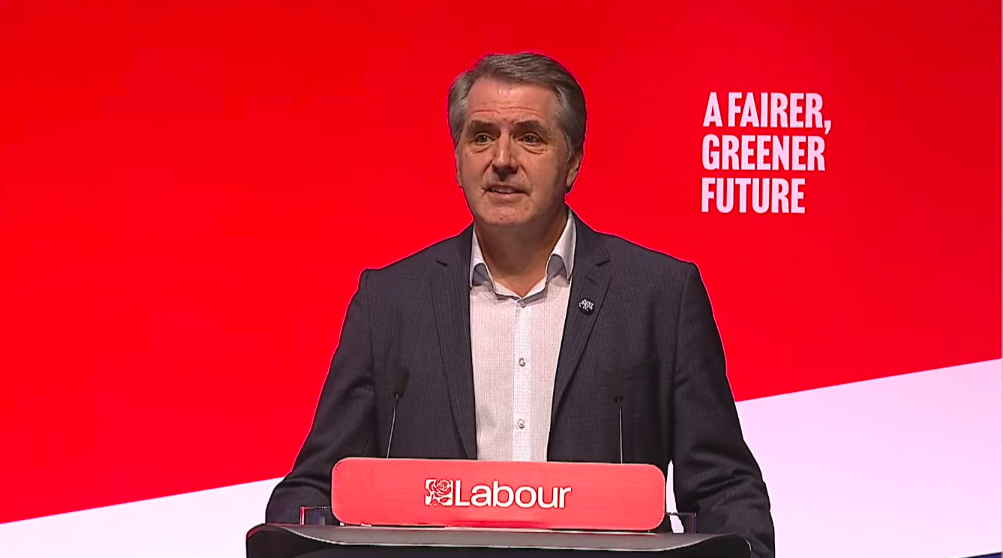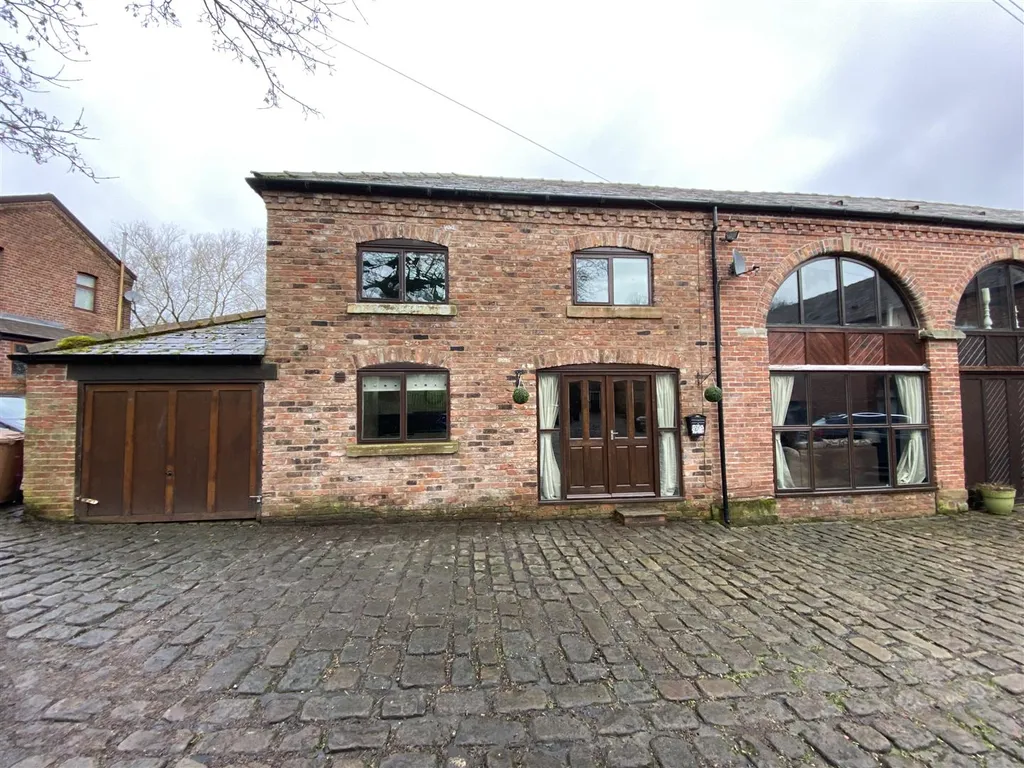Labour arrives in Liverpool, flag-waving and anthem-singing

We’re at the conference and spoke to Jeremy Corbyn - plus the rest of our weekly briefing
Dear readers — you might have seen the lanyards, you might have been subjected to a sustained bombardment of pamphlets down on Albert Dock, you might even have seen a shadow cabinet member stumbling out of Heebie Jeebies in the early hours. Labour are in town. The party’s 2022 conference is based at the ACC, but fringe events are taking place all over the city. We’ve attended a few over the last two days and witnessed a party where the left are now marginal and Keir Starmer’s patriotism-focused soft-left politics reigns supreme.
Last weekend’s story about a cycling group that was set up for recovering addicts turned out to be one of our most popular pieces (81 likes!) and featured some lovely vignettes from a joyride around the city.
Another brilliant read @liverpoolpost by Jack this week. Shining a light on the immense positive impact @PelotonLiv and co and group cycling has on the city 🚴 💙 👏
— Kate Reilly (@katereillyjames) 11:37 AM ∙ Sep 25, 2022
Last week members received a feature about class, belonging and the lives of those who live on housing estates, based on an interview with the Liverpool writer Lynsey Hanley. On Thursday, they read a review by the culture writer Jessica White, who attempted to decode the meaning behind an expressionist-stroke-fairytale exhibition by the fine artist Zahra at Output Gallery.
This week’s members-only stories include a very funny restaurant review by David Lloyd, an inside look at the Labour conference and a report from a packed Anfield stadium, which hosted the Merseyside women’s derby and illustrates how quickly things are changing in women’s football. To receive those and support a future for independent journalism on Merseyside, sign up below for just £7 a month.
And finally, some exciting news: We’re within touching distance of 10,000 subscribers on our free list and 575 members on our paid list. We’d love to reach that goal by the end of the month, so if you know someone who might enjoy these stories, please do feel free to forward this edition on to friends and family.
🌦 This week’s weather

The big story: Liverpool bears witness to a new look Labour
Top line: “It’s time to back us, not attack us” Steve Rotheram told the Labour conference today in a reference to the party’s now very marginalised left. It was perhaps Rotheram’s best received line in a speech that lasted just a few minutes, aimed at “the naysayers,” and in many ways it captured the mood of the conference at large. As Liverpool has witnessed over the last two days, Labour is now Keir Starmer’s party, Union Jacks ‘n all.
The conference so far: As the nation’s lobby hacks discovered the perils of Avanti West Coast (“Am reliably informed the trains are working better in Ukraine than on Avanti West Coast line,” tweeted The Guardian’s John Crace) over the weekend, Labour’s annual gathering got under way. Recent polls have the party 12 points ahead of the Tories, which has translated into a confident outlook. “I can sense the inevitability of loss in Tory body language,” metro mayor and body language expert Rotheram said.
Renationalisation: Speaking as part of a section of the conference on devolution, Rotheram used his time to commend today’s big announcement that Labour is committing to the renationalisation of the railways, one of the remaining traces of the Corbyn agenda. He noted that the Liverpool City Region has been the first in the country to “buy our own trains,” in reference to the Merseyrail network.
New Labour: After paying tribute to the Queen and singing the national anthem at the opening of the conference, which passed un-heckled (not a certainty considering Starmer was greeted with frequent derisory jeers at last year’s Labour conference), a video played featuring Tony Blair and Gordon Brown. Then in the priorities ballot (which selects which topics will be debated) leftwing group Momentum saw all of its proposed topics rejected bar one. Labour to Win — a Starmer-backing group — saw all of its priorities make it.

Mick Lynch: Away from the main conference area — which has greeted almost all of Starmer’s cabinet with rapturous applause (it felt as though they’d never sit down after Shadow Chancellor Rachel Reeves concluded) — you can still hear plenty of dissent. RMT boss Mick Lynch got an enormous reception when addressing an event called “The Working Class Strike Back” on Saturday with a speech that took fire at Starmer’s lack of public support for striking workers. He said:
“We have to tell the Labour Party to put your shoulder to our wheel. If you do that, we'll support you. If you can't, Keir Starmer needs to get out of the way and let in somebody else who can.”
Having grown in profile over the summer as his union went on strike, Lynch is now probably the strongest anti-Starmer voice on the left. This morning he joined Liverpool’s striking dockers alongside Jeremy Corbyn and West Derby MP Ian Byrne. Asked by The Post whether he felt his own movement would still have a large part of play over the conference, Corbyn said:
“This city has an incredible history of trade unionism and the strength of its dock workers. That’s what I care about and that’s what I’m here to support.”
Bottom line: In many regards, it’s been a conference of few surprises so far. Labour look confident as a party with a big polling lead over the Tories, the left — carried by the intense popularity of Lynch — look like a separate party altogether, and the Union Jack can be found lurking in every nook and cranny of the ACC. Perhaps even less surprisingly still, Steve Rotheram elected to sign off with a cheesy nod to Liverpool’s musical heritage. “Imagine a Labour government,” he said. “It’s easy if you try.”
Your Post briefing
Theresa Grant will take over Liverpool City Council as chief executive for around eight months, after council members officially agreed to her appointment in a full meeting last week. A full-time chief executive will step in in May, nearly one year on from Tony Reeves’ sudden departure. Grant, the former chief of Northamptonshire County Council, is credited in the Local Government Chronicle for her “cooperative conciliatory approach” with the commissioners sent in to aid the struggling NCC. “I don’t think we ever had a cross word,” she said. "We had lots of disagreements on how something should be shaped or delivered, but we always reached a consensus and importantly members were always part of the discussion. I could count those disagreements on one hand.”
The Parkside project is underway in St Helens, a one million sq ft distribution hub and larger distribution centre which hopes to bring in thousands of jobs. St Helens council has a 50% stake in the project along with local developers Langtree, and it is part of Liverpool City Region’s freeport model, a 28-mile area which allows future investors to take advantage of tax breaks, capital allowance and reduced employer national insurance contributions. It is thought this model will be replicated throughout the country after Kwasi Kwarteng’s mini-budget on Friday announced 38 further investment zones. However, a study from the think-tank Centre for Cities found that during the Cameron era, the Treasury forecast creating 54,000 jobs through freeports — the actual number was fewer than 14,000, with many jobs being low skilled. John Lucy, director of the Liverpool freeport, told the Guardian: “If this doesn’t help, this doesn’t help, but it’s better than nothing, and there’s no plan B locally or nationally, so it’s as good a place to start as any.”
Hundreds of ancient human and animal footprints on Formby Beach have been discovered by researchers at the University of Manchester, which give us a unique insight into the fall of mammal diversity and how impactful rising sea levels are on coastal landscapes and biodiversity. The footprints are thought to date back around 6,000-9,000 years ago and show Formby was a “biodiversity hotspot with large grazers and predators — a northwest European Serengeti.” Dr Alison Burns, who spent six years undertaking the research, told press this is the first time we’ve managed to reconstruct the history of an ecosystem solely from footprints in the sand.
Home of the week

A three-bedroom and barn conversion in a quiet area of St Helens is on the market for £349,950. It’s on a cobbled street next to Sutton Park.
Our favourite reads
“They’ve got a damn cheek,” Mayor Joanne Anderson says of the commissioners. “We’re being held to higher standards. I certainly find that as a black, female politician as well — being held to higher standards.” This profile, written by The New Statesman, discusses the city’s political crisis, the Toxteth riots and the Thatcher era. It’s fair to say it was not received well by everyone, including the mayor herself, who chimed in to say: “The writer has focused on a whole load of scouse stereotypes. Lazy journalism, I expected more from the New Statesman and someone who is actually from Liverpool. It’s a waste of time when the article is written in advance of speaking to me.”
Gabriella De La Puente reviews Prima Facie for The White Pube, a one-woman show where Scouse actress Jodie Comer plays a successful barrister from working-class origins who reckons with power and morality after she is sexually assaulted. Comer’s changing accent, according to De La Puente, captures something interesting about the stigmas around the Scouse accent and the performance of class identity. “She has my favourite type of Liverpudlian accent where the Ds aren’t sharp, but dull and soft like humming; and the other consonants are pressed together so that her voice is smooth, optimistic, high-pitched. Sort of girly, up and down and singing. She does the other Scouse thing I love as well, where she talks fast when she begins a sentence and then slows down at the end of it.”
Writing in Unherd, the former Financial Times editor Brian Groom argues “both the Conservatives and Labour appear to be struggling for ideas about how to solve Liverpool’s problems.” He points to the influx of new commissioners at city council, a rise in gun crime and Liverpool losing out to Manchester on inward investment as reminders of the city’s ongoing struggle, and suggests Labour should not rely on voter loyalty if it still can’t propose meaningful plans.
Vogue reviews Liverpudlian high fashion designer Steven Stokey Daley’s acclaimed spring/summer menswear collection, whose success owes a great debt to his Liverpool roots — an elderly neighbour helped knit vests for one of his collections, another made hats and two worked on shirts. “Daley’s interest, right from college, has always been about looking at the behaviors and dress codes of the British upper classes, chiefly of the 1920s and ’30s, from the point of view of a working class designer.”
Photo of the week

Four Liverpool fans dressed in scarves, football kits and red eyeshadow outside Anfield Stadium on the day of the Merseyside Women’s Derby, 25 September 2022.
Post Picks
🕺 Jim Ottewill, author of Out of Space: How UK Cities Shaped Rave Culture, is the star of this week’s literary event discussing the present and future of rave culture, which also features discussions between industry experts from Future Yard and 24 Kitchen Street. Catch them at Melodic Bar on Thursday evening. It’s free to attend.
🎞 Merseyside-based artists Patric Rogers and Angelo Madonna are screening their new film, A transfigured moment in time, at Williamson Art Gallery on Friday evening, as part of their exhibition which looks at the uninhabited archipelago Hilbre Island as a space to explore psychogeography and folklore. It’s free.
🎭 A Midsummer Night’s Dream is one of the season highlights at Shakespeare North this autumn, drawing out themes of class struggle and raucous nights out. It is thought that Shakespeare wrote A Midsummer Night’s Dream to mark the wedding of Knowsley’s 6th Earl of Derby, William, to Elizabeth de Vere in the presence of Queen Elizabeth I. Tickets are pay as you feel.
🎬 FACT’s latest film programme, Whose Homeland? tells the stories of the Chinese diaspora, with a focus on changing cultural identity across generations and an introduction from the filmmakers who made the project. It’s showing tomorrow evening from 6pm.
🗣 Ignite Liverpool — a mix of live speakers, drinks and one-minute sells for inspiring projects in the region — is back at Leaf on Bold Street on Wednesday evening, promising talks on the similarities between jazz and problem solving and a history of Marxism in five minutes. Tickets start at £3.
📚 The excellent West Kirby Books is hosting a literary event on Friday evening which features tiramisu, wine and a discussion between Thea Lenarduzzi, author of Dandelions, and the culture writer Jessica White, who Post members might remember wrote an excellent critique of a fairytale exhibition for a recent members’ edition. The event is currently sold out, but you can add yourself to the waitlist here.
Letters from readers
Excellent article Jack. Not heard of this group or seen the phenomenon and living in the north of the city it’s unlikely. However, I really enjoyed hearing about the positive effects this is having and how it impacts people in the right way. All I can say is keep on flowing to the beat and hope to see the group one day, I’ll dance as they pass by ‘Although it’s the drugs capital of England, it’s also the recovery capital’, Carolyn Thornton
I went to a exhibition in London by the Iranian painter Tala Madini a couple of years ago and was inundated with commentaries which highlighted the social significance of her work. As with Zahra, I just thought that she could paint and that the proof of this lay in the works themselves rather than the, somewhat mainstream, analysis offered by the gallery ‘At Output Gallery, Zahra wants you to decide for yourself’, Ming-Ko

Comments
Latest
This email contains the perfect Christmas gift
Merseyside Police descend on Knowsley
Losing local radio — and my mum
And the winner is...
Labour arrives in Liverpool, flag-waving and anthem-singing
We’re at the conference and spoke to Jeremy Corbyn - plus the rest of our weekly briefing